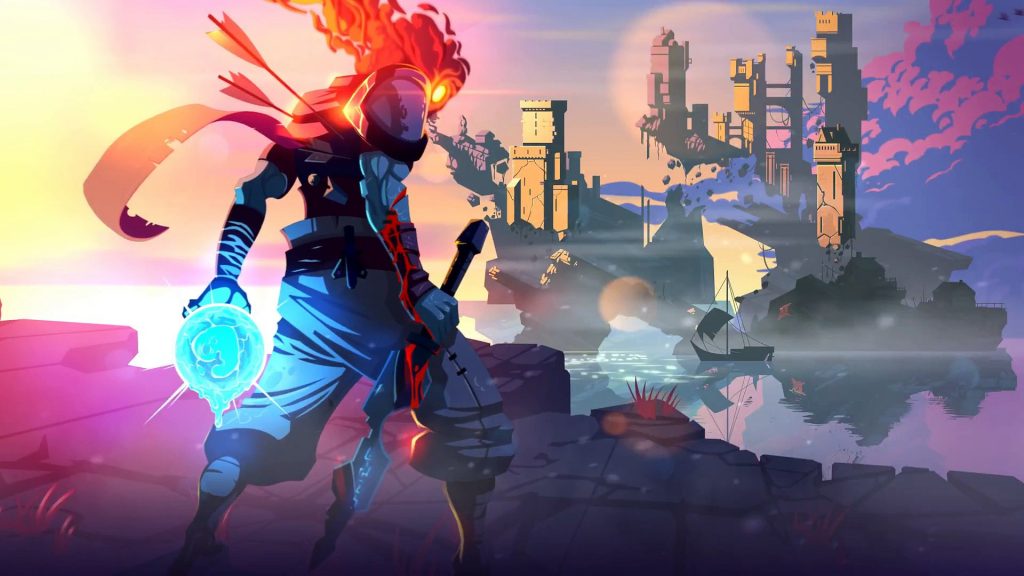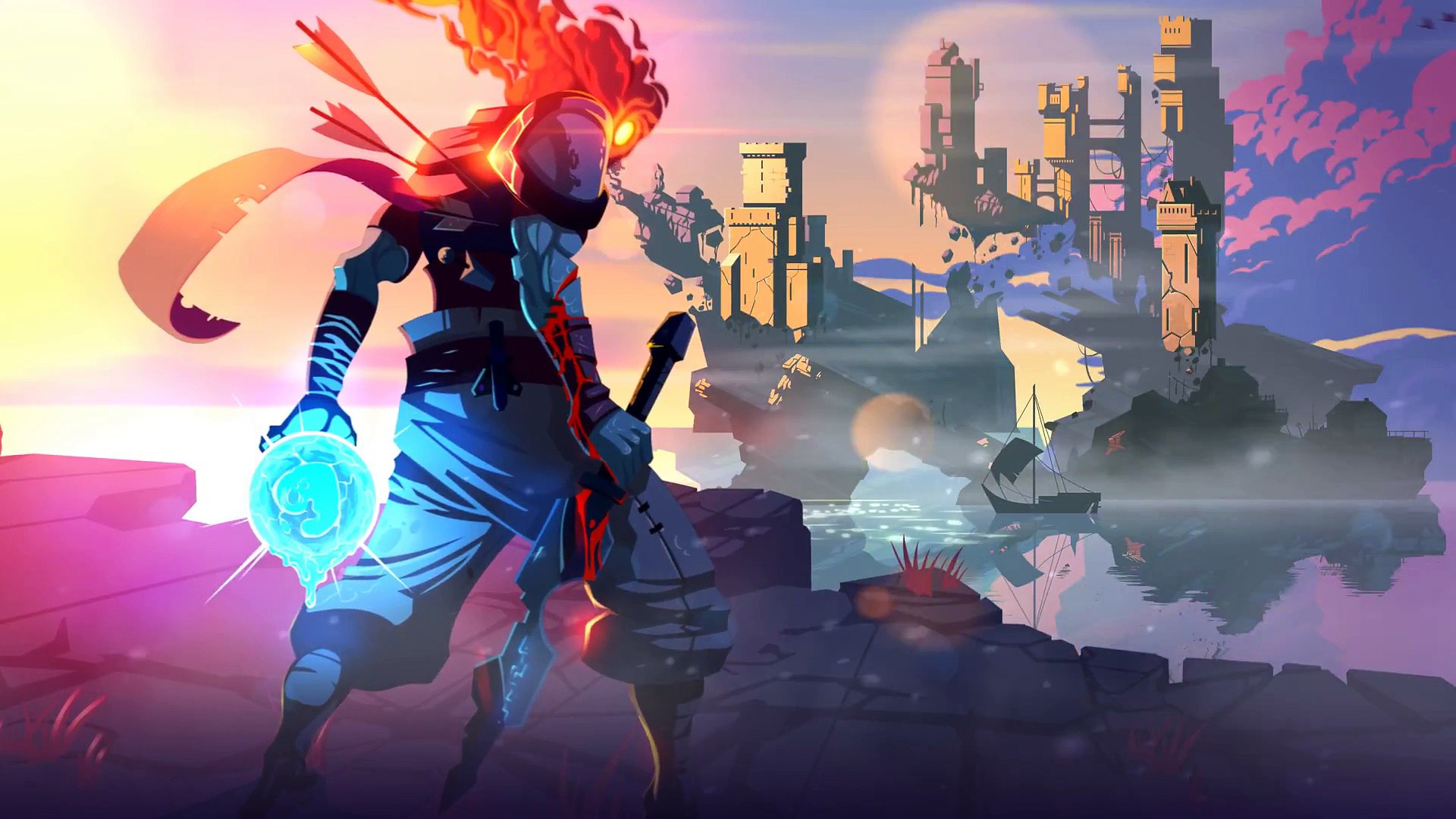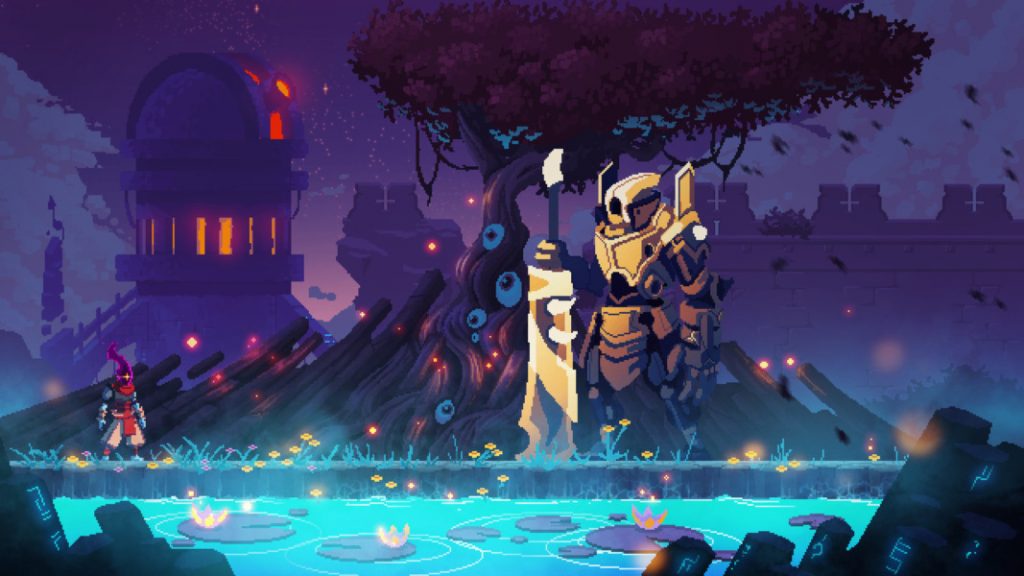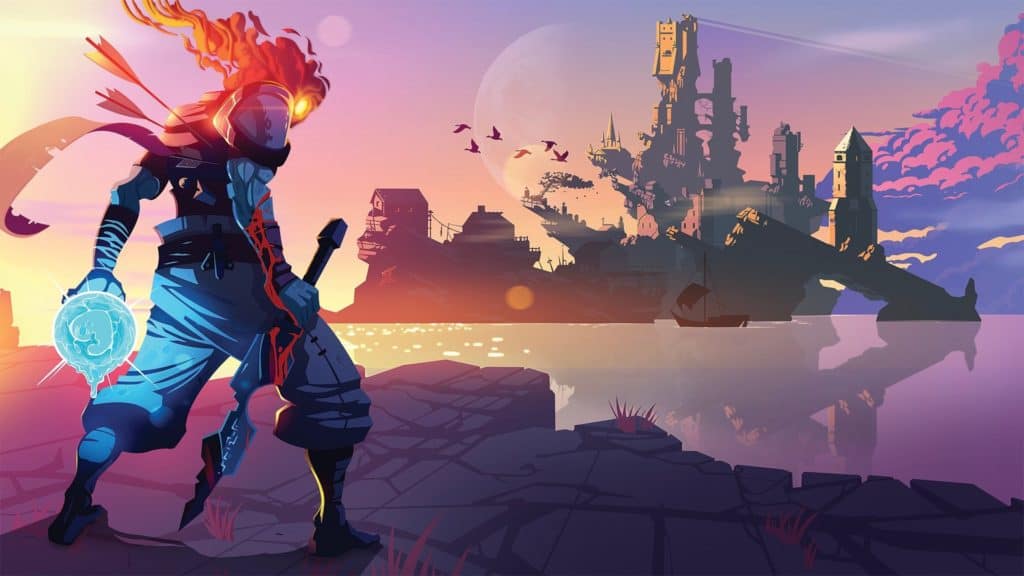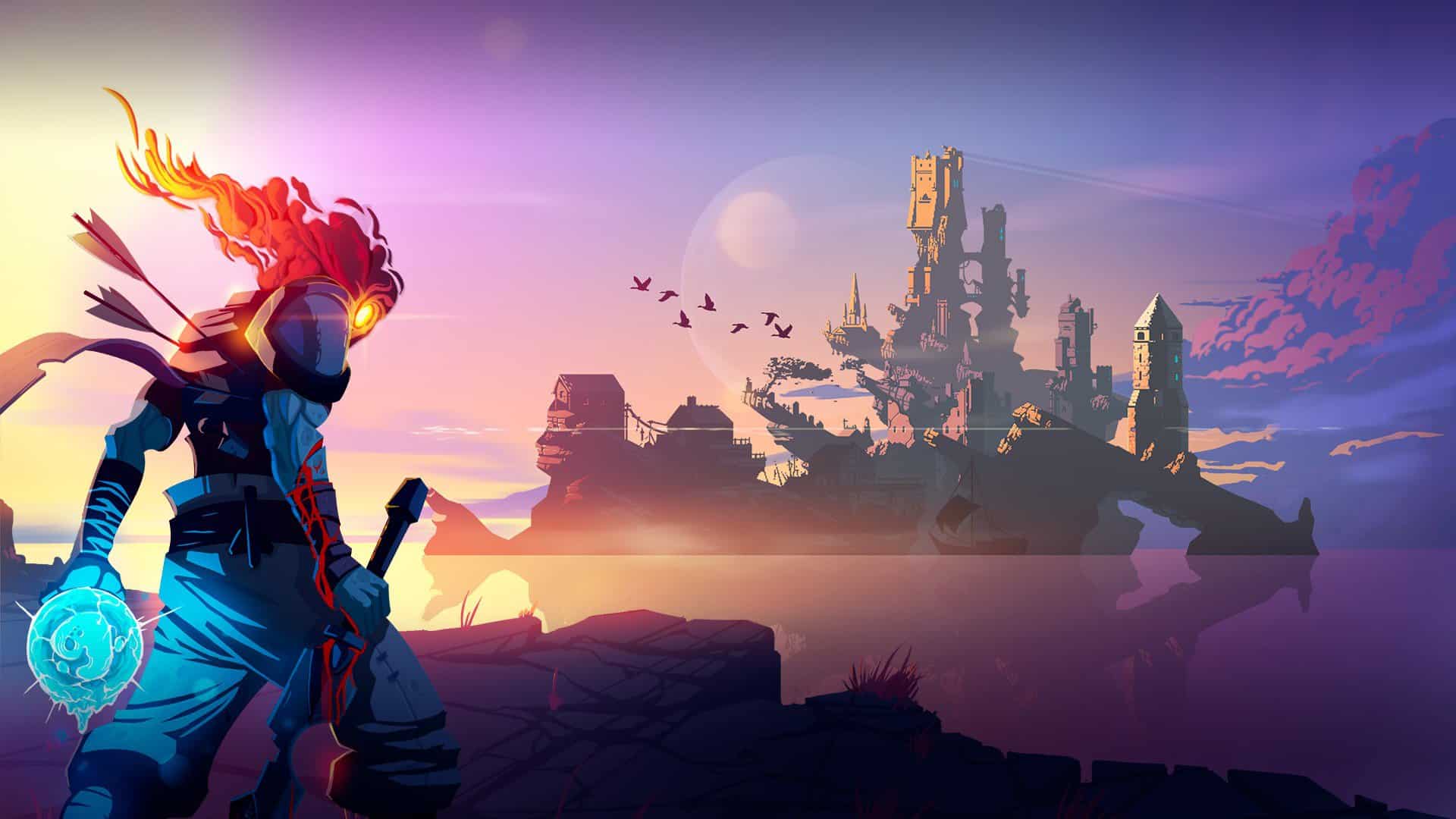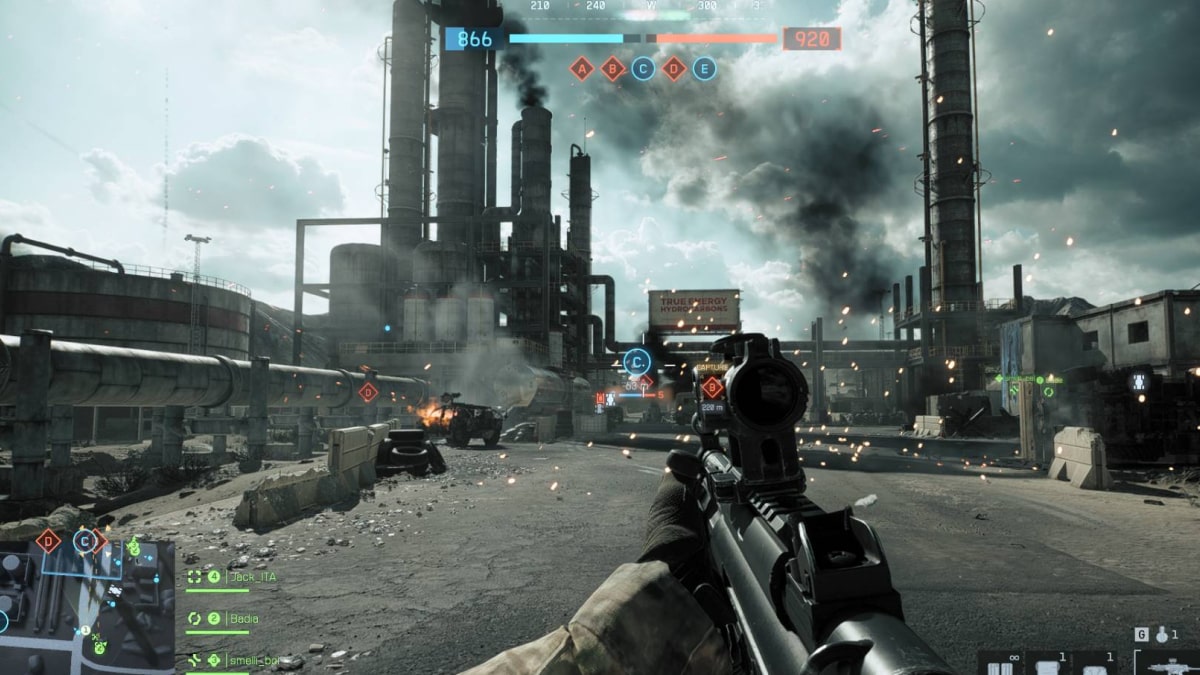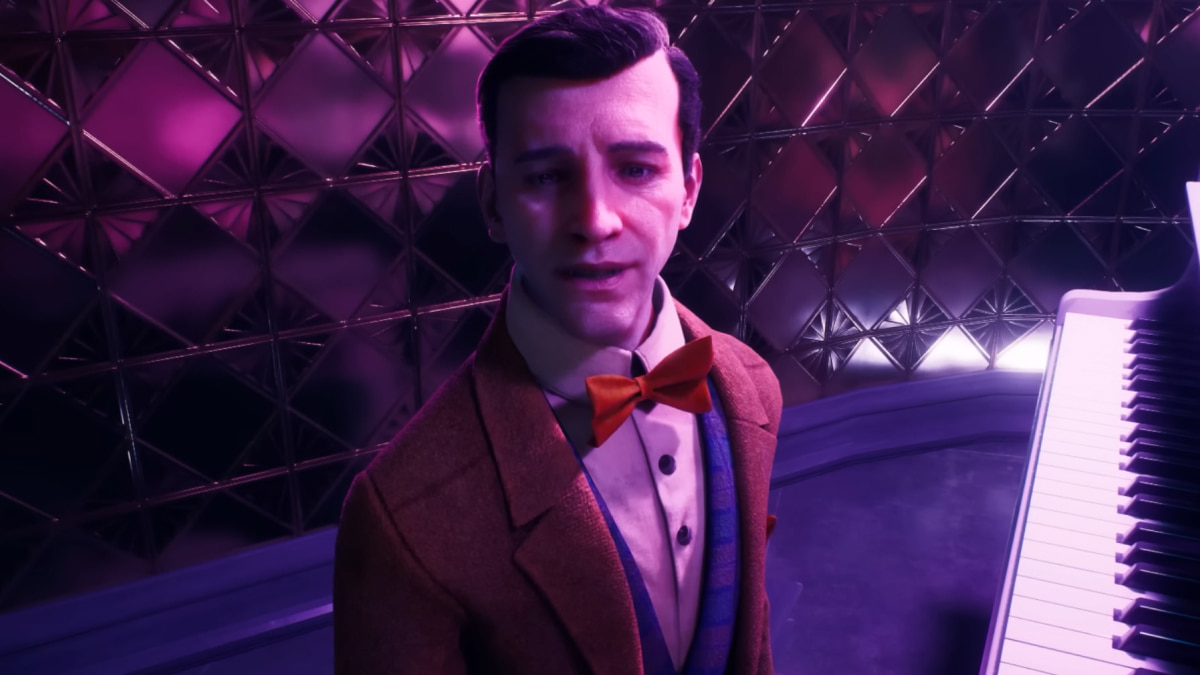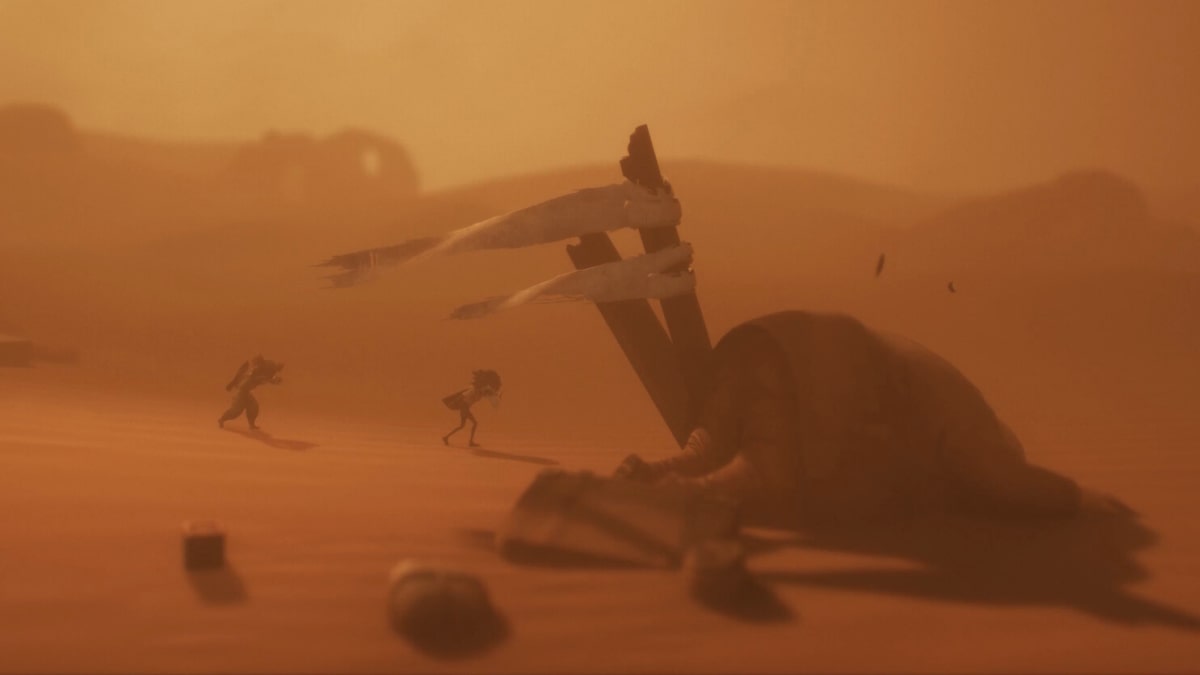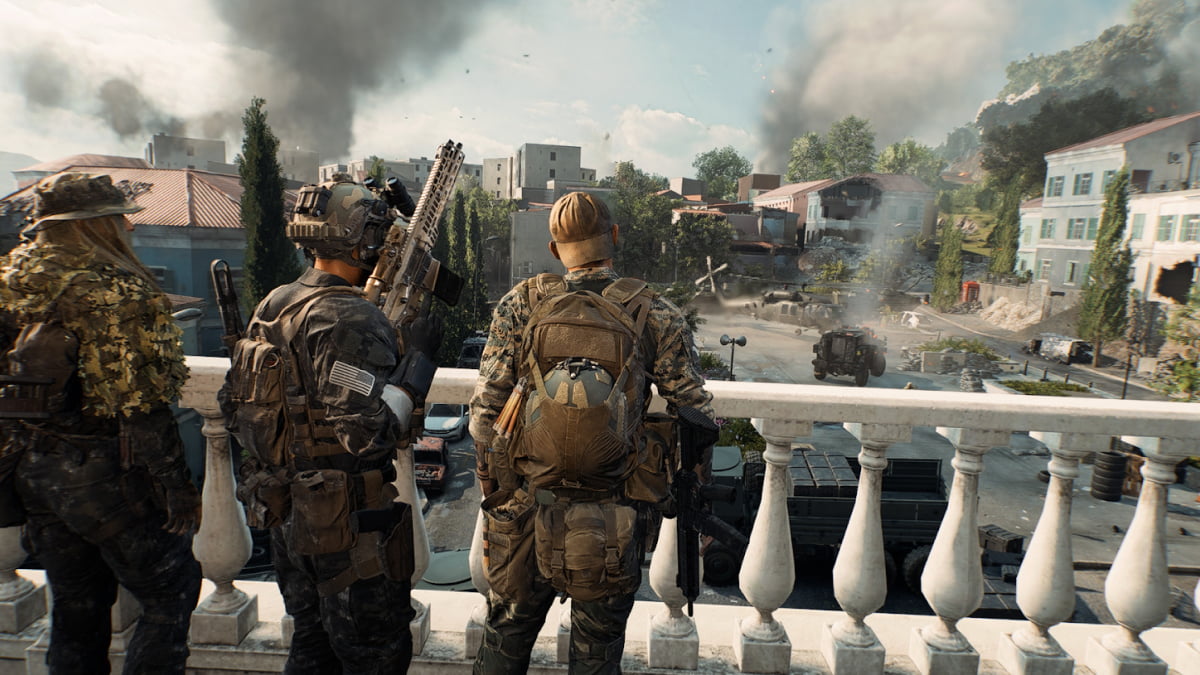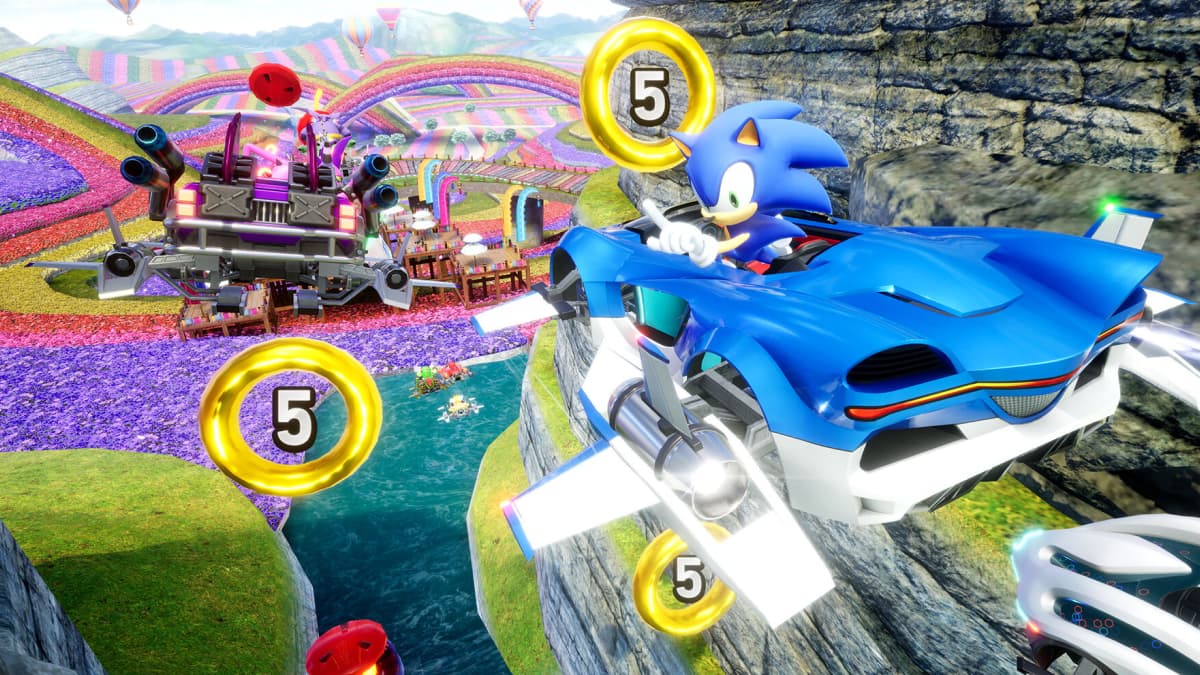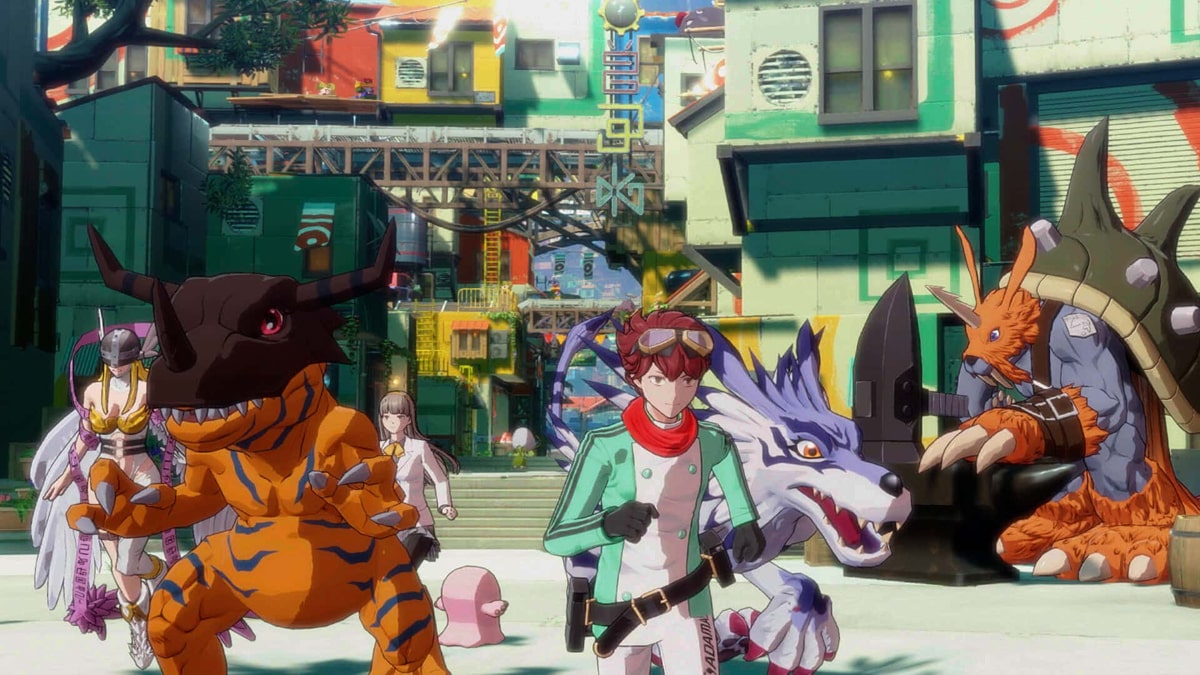You can trust VideoGamer. Our team of gaming experts spend hours testing and reviewing the latest games, to ensure you're reading the most comprehensive guide possible. Rest assured, all imagery and advice is unique and original. Check out how we test and review games here
The star of Dead Cells is a curious figure. He moves beautifully, like a liquid whip, his clothes carrying the same rotoscoped ripple that Jordan Mechner gave his prince. He wears the same signature flourish as Shinobi, a flapping hank of red trailing his body at every leap. Only, it isn’t his body: at the very beginning, a blob of moss green mucus plops to the floor of a dungeon cell and possesses a corpse, birthing our hero from the dust. Not long after, we happen upon a pile of identical cadavers, and realise he is but one of many aborted attempts – something with which we will become intimately familiar.
There is something of that re-animating slime in developer Motion Twin’s approach, slotting itself into a number of dried husks – roguelikes, Metroidvanias, soulslikes, hack-and-slash platformers – and imbuing them with bursting colour and life. The title seems a wry smile: the cells of these genres may be near expiry, but that bears no mark on the studio’s confidence, nor the game’s freshness – squeezed from an agglomeration of styles and tropes like blood from a stone.
When you begin, you’re gifted the gear of a greenhorn: a spent sword, and a choice between a weak wooden shield and a bow. From there, you stockpile greater weapons and abilities, hoovering dropped cells and treasure as you prune back the enemy horde. You invest these between stages, at a shadowy souk manned by an insectoid fellow in robes. Along with a checkpoint and a fill of your health flask, you’ll purchase weapon buffs, magic perks, and, best of all, new toys.
These are a collection of delirious playthings, giving you enough variety and firepower to fill an ordnance depot, and ramifying your play style. Experience the thrill of the huntsman, laying wolf traps and whipping up crossbow sentries to shred your foes remotely. For those that favour fire, the oil grenade is an essential purchase, to be paired like a dinner wine with the flamethrower turret, charring your enemies the colour of merlot. And for the giddy sadist, look no further than the sinew slicer, which fires buzz saw blades like clay pigeons.
Although one of the heartbreaks of death is being stripped of these wonderful toys, you find yourself mollified with the prospect of trying a completely fresh approach. In fact, Motion Twin has built in a few instant therapies for the deceased and displeased. There’s nothing quite like the cathartic crunch of a door as it cracks under your blade, a shower of splinters stunning any lurkers on the other side. Likewise, the fury of your swipes as they ding your foes into a daze is an instant salve to the chafe of your most recent expiry.
Bitter solace comes, too, in the knowledge that the fault was firmly your own. Each swing of the sword is accounted for, locked in; each jump is clipped with downforce, your movements precise and measured; your evasive roll, while not whisking you far, grants you precious frames of unassailable grace. Then there’s the parry. Dead Cells’ parry is a wondrous welting of metal on metal, rewarding only the most daring. Partial parries slice slivers from your health; failed parries give way to bog standard blocks, cutting off larger chunks; but only the perfect parry negates all harm, opening your foe to a vicious counter offensive.
Of course, far more common than perfectly-timed success – at least early on – is punishing failure. Owing to its Roguelike heritage, you’ll begin afresh over and over again, and you may find yourself wondering why. Dead Cells feels hard-bitten by callousness and misunderstood obligation. Dark Souls may not have tempered its justice with mercy, but justice was always the verdict delivered. Motion Twin has opted for cruel and unusual, and, of all its influences, it could happily cast aside its Rogue inheritance. It is of some consolation, then, that we see our hero throw his hands up at the scraps of vague backstory, or shake his head and jerk his thumb at oblique NPC gibberish. He’s been here before, and so have we; it helps to smirk when you’re stuck in Punxsutawney.
By way of further ointment to the game’s stresses are the environments. One stage sees a castle, the sun hanging low as it did over Lordran; only, with a dash of Bastion, the ramparts and battlements hang fragmented, floating with a gentle bob. It looks like the mobile you would fix over a baby’s cot if you wished to prepare the poor child for a bleak future of Black Knights and backstabs. Elsewhere, familiar sights abound in pixel art parallax. See Bloodborne’s fishing village, rickety jetties and inns all the colour of damp; and look, there’s Castlevania’s clocktower, cogged and creaking, bedecked with endless ladders.
These cease to be cliché and become a sort of whirling genre wallpaper, pasted over fungible proc gen levels like shorthand. They are perfectly served being what they are: backdrops. They never grow tired because they remain unprobed, just as you don’t explore – merely expand. Which seems something of a credo for Dead Cells. Every borrowed facet of design comes together to form a phalanx, each game shielding its neighbour: the Roguish irritation of starting over lessened by Metroid’s knack for newly illumined areas; the relative simplicity of Castlevania’s combat, bolstered with Dark Souls’ pain and precision.
These invocations invite harsh comparisons, however, and the question ringing throughout isn’t whether or not it does its best, but whether or not it stands with the best. The cruel answer to that question is ‘no.’ But it’s the sort of ‘no’ our hero would shrug off with gleeful irreverence. In drawing from such rarefied company, Dead Cells lacks originality, but the game’s true merit, along with its biggest weakness, lies in the perfection of its execution. Motion Twin has proven that the cells of the game’s makeup are far from dead, but it’s haunted by cells of a different kind – the shards of its design locked away in a series of established chambers.
Developer: Motion Twin
Publisher: Motion Twin
Available on: PlayStation 4 [reviewed on], PC, Xbox One, Nintendo Switch
Release Date: August 7, 2018
To check what a review score means from us, click here.
Dead Cells
- Platform(s): iOS, Linux, macOS, Nintendo Switch, PC, PlayStation 4, Xbox One
- Genre(s): Action, Indie, Platformer, RPG
